UX Careers was originally published on dynomapper.com
User Experience, also known as UX, is absolutely one of the fastest growing and possibly most exciting parts of the interactive industry. There are many facets to a career in the user experience, and all of them are deeply rooted in a passion for not only knowing users, but being able to shape their experiences into the best that they can possibly be. In this guide for UX careers, you will find essential information about the various career opportunities around UX, the national benchmarks set for such salaries, the best areas for jobs in UX, and essential tools of the trade for those User Experience professionals.

USER RESEARCH
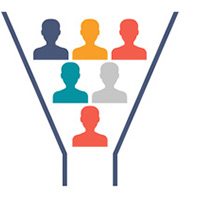
SALARY: $80k – $117k
The focus of this career is to provide a deeper understanding and broader insight to the behavior of users, the needs of users, and the motivations of users. These researchers offer feedback pertaining to all phases of a design process starting at the project conception, going into implementation, and ending when development is over.
The tasks performed in this career are: to conduct task and user analyses that will identify the opportunities to improve upon the user experience, and to analyze research findings and form them into usable data to be furnished as recommendations and actionable results. The salary range for this career is between $80k and $117k annually.
USABILITY ANALYST
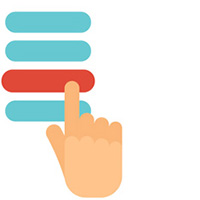
SALARY: $66k – $127k
This career will identify usability problems by applying usability principles and user research. This position aids in ensuring that usability goals are met through identifying objectives for projects, measuring outcomes, and evaluating the success of given studies.
The tasks associated with this career are: investigating and resolving user experience issues through the use of evaluating and testing, as well as successfully improving upon and communicating actionable insights that will substantially improve upon the customer or user experience. The salary range for this career is between $66k and $127k annually.
INFORMATION ARCHITECT
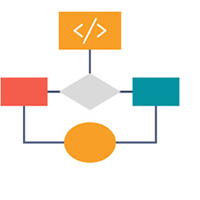
SALARY: $80k – $126k
An information architect will have their focus on scoping, constructing, and optimizing how information will be presented to users on a website. They will take part in developing thorough and realistic plans that will support an organizational user experience objective.
Responsibilities of this career include: creating wireframes, functional specifications, process maps, prototypes, and any other artifacts that will describe the user experience, as well as applying user personas as well as scenarios to develop a relevant process and user flow model. The salary range for this career is between $80k and $126k annually.
INTERACTIVE DESIGNER
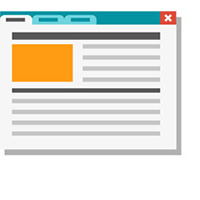
SALARY: $74k – $115k
An interactive designer will draw upon user data along with research and team input to generate an interaction concept that will enable a seamless, relevant, fluid and engaging experience for all users.
Responsibilities of this career include: participating in the creation of rapid prototypes that will illustrate an application or service, and cooperating with peers such as visual designers to solve problems and to create full design solutions for projects. The salary range for this career is between $74k and $115k annually.
VISUAL DESIGNER
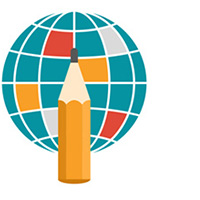
SALARY: $60k – $97k
A visual designer is responsible for turning wireframes and prototypes into visual designs that will be user friendly and will adhere to any and all brand guidelines. These designers rely on their keen understanding of graphical elements, brand standards, style guides, and design systems.
The responsibilities of a visual designer include: creating engaging, effective, and usable visual design solutions that will achieve and any all goals centered on a website’s user, and the validation of the effectiveness of designs, to be done through research and studies of usability. The salary range for a visual designer is between $60k and $97k annually.
UX DESIGNER

SALARY: $73k – $110k
A user experience designer is generally a jack of all trades in the design process centered on users. The role will focus on creating the successful user experience through researching, feedback, analyzing, testing, and best practices.
The main focus of a user experience designer is: driving the development and communication associated with the user design process on a given project, and participating in researching, analyzing, developing, and testing phases of a design process. A UX designer can expect to make between $73k and $110k annually.
WHERE ARE MOST OF THE UX CAREERS LOCATED?
The top 10 cities in the United States for User Experience careers are:
- New York, New York
- San Francisco, California
- Atlanta, Georgia
- Chicago, Illinois
- San Jose, California
- Seattle, Washington
- Boston, Massachusetts
- Los Angeles, California
- Charlotte, North Carolina
- Washington, DC
WHAT TYPE OF PROJECTS BRING DEMAND FOR USER EXPERIENCE PROFESSIONALS?
The project types include: web-based projects like public websites, web-based apps, e-commerce websites, shopping carts, and landing pages. It also embraces advertising that drives engagement such as banners, email campaigns, social networks, video games, dating sites and surveys, and applications from a client’s side such as a mobile application or application on another device like a GPS or e-reader.
DISTRIBUTION OF UX CAREERS
- UX Designers: 26%
- Interaction Designers: 24%
- Visual Designers: 23%
- Information Architects: 18%
- User Researchers: 6%
- Usability Analysts: 2%
SKILLS POSSESSED BY A USER EXPERIENCE PROFESSIONAL
- Markup like HTML, XHTML, and XML
- CSS coding
- Page layout and interface design
- Image editing and production
- Front-end programming like JavasCript
- Information architecture, site mapping, and wireframing
- Usability testing and knowledge
- Graphic design
- Back-end development like PHP, Ruby on Rails, and ASP
- Project management
- Writing and editing
- Findability, search engine optimization, search engine marketing
- Accessibility testing and knowledge.
A DEGREE IN UX?
A degree in User Experience is not necessarily vital for getting a career in UX, but having this formal university education would not hurt. Unfortunately, there is not a large selection of universities that offer a formal User Experience degree, but it is possible to break into the field with a degree in psychology, graphic design, human-computer interaction, UI design, visual design, and interaction design.
There are a few universities in the United States that offer User Experience programs:
If it is not possible for you to commit the time or money to a 4 year program, look into earning a certification for User Experience through an affiliated program. Informally, there are many tutorials, articles, courses, and ebooks that are available to help out.
UX Design courses are offered through the following websites:
TRAITS POSSESSED BY A SUCCESSFUL UX DESIGNER
Before deciding that you want to pursue a career as a UX designer, you must assess yourself as an individual and determine if US design is something that truly does suit your personality. These are the top 3 traits that will contribute to someone becoming a great UX designer.
- Passion. If the passion in your motives is lacking, then user experience design is not the career for you. It is vital for one to be fervent about deconstructing experience wherever they may go, and they should be passionate about user experience design. Many UX designers will tell you that design is not a simple and structured job, it is the calling of a lifetime.
- Curiosity. Having a natural curiosity will foster the will to solve problems. These problems will occur in people, patterns, and in the world. The design world is not as simple as black and white, and a User Experience designer must be more than comfortable with wading through the expression of culture, behaviors, and technology. This natural curiosity will help designer to unravel the correct problems to solve, and this can be seen as holding importance over creating correct solutions to problems that are not of importance.
- Empathy. In order for a UX designer to successfully design great products that they might not even ever use, they must be able to internalize the frustrations of others. A good UX designer will know their target user like an old friend. They will fight for users, and they will apply their empathy internally in order to better collaborate with their coworkers and stakeholders.
Other qualities are also important for making a successful UX designer.
- Self-educating. The ideal candidate would be willing to constantly learn new things such as user behavior or new design techniques. This ties back into the curiosity element, because the person must be willing to learn beyond what is expected in the 9 to 5 in order to really excel in the world of user experience design.
- Detail oriented. User experience design can look simple, but that is only because most of the work that is done takes place under the surface. User Experience designers must be able to accomplish the work of a big picture just as well as they can accomplish assessing all of the micro interactions and how they make up the entire user experience.
- Receptive to feedback. There will be plenty of unpleasant feedback from both users and stakeholders. Although you might feel a sense of responsibility for the design, do not ever fall into the way of a knee-jerk reaction. The job is to facilitate a good design, so ego should not be a problem.
BENEFITS OF HAVING A MENTOR
Networking is in fact a great result of the relationship between a mentor and mentee, the highest benefit is to learn more practical skills with more speed. Courses and classes will provide sufficient knowledge, but there is priceless benefits to speaking with and learning from someone that has much more mileage in the UX design world. It is not even necessary for the mentor to be local to the learner. It is possible to use Skype, Google Hangouts, or other various tools to communicate with them to absorb their advice and opinions on real world situations.
HOW IMPORTANT IS KNOWING CODE?
There is a lot of debate surrounding whether or not designers should learn code. For designers that specialize in UX, it is not totally necessary, but it will give the person an advantage. Front-end user experience or user interface designers do not have a lot to do with the back end programming. Even so, there are some benefits to be had when you know the job of the other half.
If working in a smaller company, knowledge in coding could come in handy when building HTML prototypes to test feasibility. If working at a larger company, knowledge of coding can also help when collaborating with developers. Finally, the more that a User Experience designer understands code, the more that they will understand how the total process works.
DIVERSITY IN THE FIELD
There is no single characteristic that can define the career path of someone in UX. A great majority of those in the field do work on websites and web applications, and this can be expected for anyone that is interested in UX. There are also over 80 categories for working in User Experience, including areas such as power grid systems and home theater devices, and even medical devices.
All of these things rely on usability, therefore must employ one or more user experience professionals, and almost half of those working in the UX field have reported working in all three of the main roles such as research, information architecture, and interaction design.
Careers in the user experience field can vary greatly, but they all have elements that will connect them indefinitely. Whether the job is in visual design, interaction design, UX design, information architecture, user research, or usability analysing, user experience professionals will all need to have not only the same basic set of skills, but also the same traits that will make them successful in the field. While formal schooling for careers in UX is not absolutely necessary, it would be to the individual’s benefit to either take classes or courses to expand their knowledge or to have a mentor to help them along the way, aiding in learning new skills with real world application.
Author: Garenne Bigby

